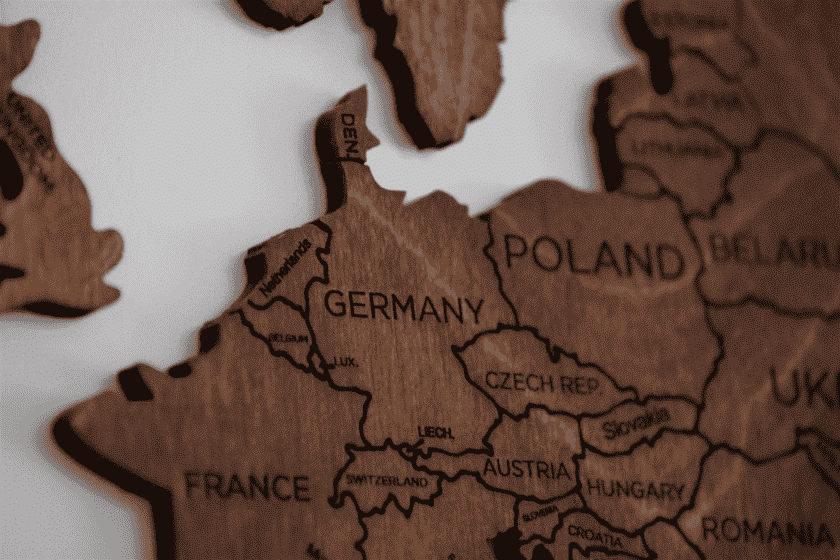This detailed guide explains whether it’s better to learn German or Polish.
Learning a foreign language is a big deal, especially when you’re discussing more difficult languages like Polish and German. Once you’ve committed yourself to it, you will invest countless hours and an immense amount of brainpower to learn.
Thus, you want to make sure that the choice you make (because most people only learn one foreign language at a time) is the right one. So, should you learn German or Polish? Which one is easier? Which one will be more beneficial to you in the long run? Let’s explore your options.
Similarities Between German and Polish Languages
Both German and Polish are Indo-European languages that use the Latin alphabet. However, that’s about the extent to which these two languages are the same. They’re from different linguistic families, and even make different sounds from the same letters.
One of the fun similarities between these languages’ alphabets and word structure, though, is that they have longer pieces of consonant clusters compared to English. In English, most consonant clusters in a syllable are only two letters, sometimes three.
In German, it’s quite typical for a word to have three or four consonants in one syllable. Polish takes it even further, though, with a hefty amount of words using four consonants once, twice, or even three times in a word. And some words don’t even have any vowels at all.
German and Polish both use three genders for their nouns: masculine, feminine, and neutral. They have intricate case systems that determine how nouns are used, too.
Differences Between Polish and German Languages
Although Germany and Poland are quite close geographically, the languages themselves are quite different. German is a Germanic language (no surprise there), while Polish is Slavic.
The two languages developed completely separate from each other over hundreds of years. Therefore, although they both use the Latin alphabet, their pronunciations of the letters aren’t the same. Each language also has a selection of letters (and sounds) that aren’t used in English.

Some Polish people do speak German, though—about 150,000 of them. This is a small minority, but if you go to Poland you’ll likely find some people groups, towns, or restaurants in which German is used.
Remember that I said both of these languages use case systems? Well, German has four and Polish has a whopping seven.
However, there are fewer verb tenses in Polish (three) than in German (six). German has articles before their nouns but Polish doesn’t use any.
Polish and German also stress different syllables. Almost all Polish multi-syllabic words stress the second to last syllable, while in German, it just depends on the word.
Which Language Is Easier To Learn: Polish or German?
If you are already a native English speaker, or you speak other languages that use the Latin alphabet, then learning German might be a bit easier at the beginning as most of the German language’s letters and sounds are similar to English.
However, if you already speak another Slavic language or have family members who can help you learn Polish, then you might be ahead of the game there.
When we compared the differences between Polish and German grammar above, you can see that they are quite different. Thus, where one aspect of a language might be more difficult to learn, it’s evened out by something harder in the other language. In Polish, for example, noun cases might be harder to learn, while in German verb tenses might be more difficult to master.
German is often thought of as a tricky language to learn, but Polish is no picnic either. Both of these will give your brain a hefty workout, but they’ll be worth it in the end.
Why You Should Learn German Rather Than Polish
Across the globe, about 130 million people speak German, with almost half of these people concentrated in Germany. German is the official language of plenty of other countries, too, including Switzerland, Lichtenstein, Belgium, Austria, and Luxemburg.
English is usually seen as a language that gets its words and structure from many other languages, hence the multitude of “rules” and numerous exceptions of words that break those rules.

That said, German and English come from many of the same roots, so German has a hefty number of English cognates, or words that look, sound, and mean the same thing. So, this could help begin your German proficiency because Polish and English have almost none of these similar words.
Something else to consider is that Germany is one of the most influential powers in the European Union. So, if you plan on a career that requires travel and international relations, then German is a solid choice.
Why You Should Learn Polish Rather Than German
Fewer people speak Polish than German; however, if you’ll be going to Poland, or if you have a Polish background, then learning this language will be highly beneficial (obviously). Not to mention, Brazil, Canada, and Israel boast thriving Polish communities, as well as the United States.
If your career or social goals point you toward other Slavic countries, such as Russia, Czech Republic, Serbia, or Slovakia, then Polish is going to give you an advantage.
Not only will learning these languages be much easier, but you’ll be able to figure out the basics with less effort because of what you already know about Polish.
Plus, if you want to go further and learn Russian (which is the most-spoken Slavic language), it will be easier if you learn Polish first since Polish uses the Latin alphabet and Russian uses a completely different Cyrillic system.
Wrapping Up
All in all, the decision of whether to learn German or Polish can only be made by you. Take in all this information and decide which language best meets your personal needs. Don’t be influenced by herd mentality.
If that isn’t helpful enough, imagine going through life without one of these languages. If pretending to be without one makes you more disappointed than the other, then go with the one your heart is telling you to learn. Enjoyment and passion for learning a new language are some of the best predictors of success and proficiency. Whichever it is, know that you’re taking a valuable step toward improving your life.
There are far more differences between German and Polish than there are commonalities. Gender cases, conjugations and tenses are just a few major differences. There is very little overlap between these two languages.
Many English speakers believe it is easier to learn German than Polish. With German, there is significant overlap in vocabulary with English, versus very little overlap with English and Polish. Polish has far fewer commonalities with English, making it harder to learn generally.




